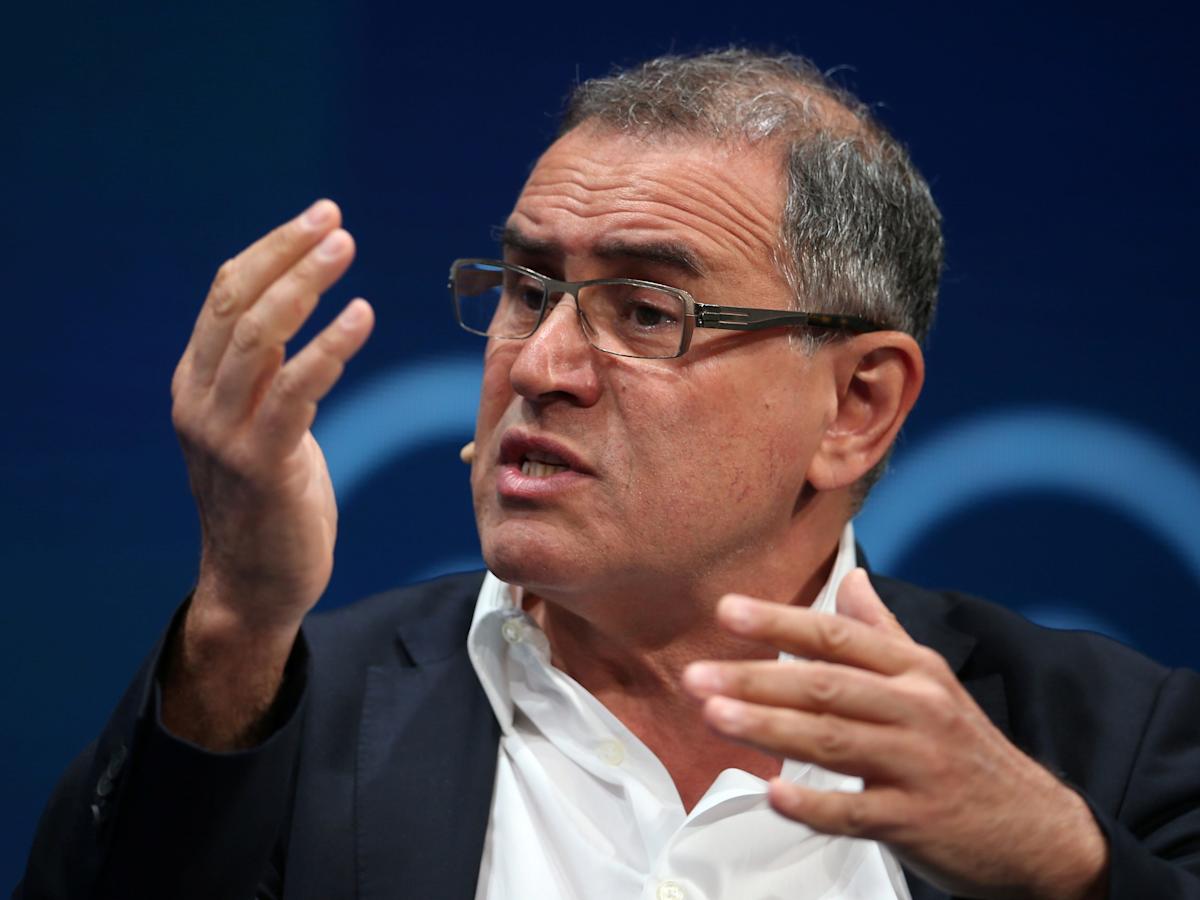Nouriel RoubiniREUTERS/Lucy Nicholson
Nouriel Roubini, who’s been known as “Dr. Doom” for 17 years, is feeling more upbeat.
The economist has scaled back his recession call and thinks the US is headed for an investment boom.
He told BI there are three things that have driven his newfound optimism.
Wall Street has been calling him “Dr. Doom” for 17 years, but Nouriel Roubini — the economist famous for his persistently bearish and frequently dystopian takes on the world economy — is sounding surprisingly positive lately.
He’s rescinded his earlier call for a recession, and now sees a US tech and artificial intelligence investment boom unfolding that will uplift the economy through the rest of this decade.
By 2030, Roubini thinks economic growth in the US will double from around 2% to 4%, while productivity growth surges from around 1.9% to 3%. The stock market is also likely to climb higher, he told Business Insider in an interview, predicting the S&P 500 would see high single-digit percentage growth in 2025, on par with its historical return.
It’s a sharp turnaround from the gloomy forecasts he’ is known for. Roubini told BI the nickname started to stick in 2008, when the New York Times referred to him as “Dr. Doom” after he correctly called the Great Financial Crisis, he told BI.
“Even before, I always said I’m not Dr. Doom and I’m Dr. Realist, first of all,” Roubini said. He said that he’s made numerous forecasts that were more bullish than the consensus throughout the years when the evidence lines up. “So I don’t know why people think that I’m always Dr. Doom. It’s not the case.”
A 2008 New York Times article referred to Roubini as “Dr. Doom.”AP Images
His outlook, though, has brightened considerably since 2022. Back then, he appeared on TV and penned op-eds warning of a coming stagflationary debt crisis. At the time, he described the turmoil he saw looming as an all-in-one financial crisis involving spiraling debt levels, soaring inflation, and a severe recession.
Roubini told BI there are a few things that have gotten him to change his tune.
Roubini says he began to hear the murmurs of the AI revolution well before ChatGPT went viral at the end of 2022. In his 2022 book, “Megathreats,” he acknowledged the potential for artificial intelligence to significantly boost economic growth and serve as a major tailwind for markets.
That’s become a reality way faster than Roubini expected, and a major reason he’s become more bullish, he told BI.
He believes the economy could start to reap the growth and productivity benefits of AI in the next several years, particularly as humanoid robots enter the mainstream.
Story Continues
